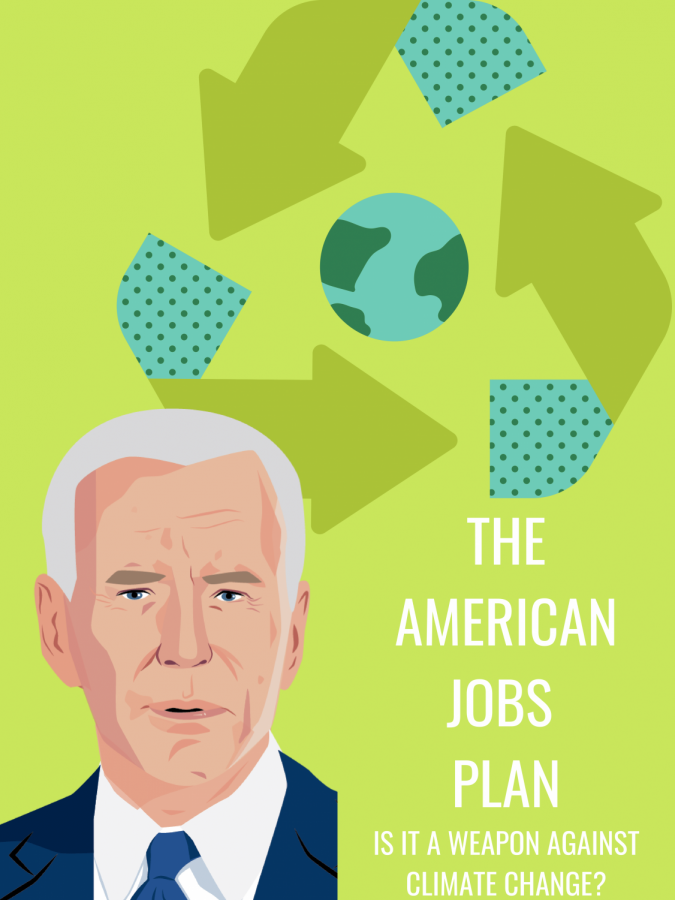How will Biden’s infrastructure plan combat climate change, and will it be effective?
April 21, 2021
On March 31, President Joe Biden announced a new infrastructure bill that places an emphasis on green energy. If signed into law by Congress, the $2 trillion American Jobs Plan would work to fight climate change and achieve the goal of the Biden administration’s goal to reach net-zero carbon emissions by 2050.
The overall goal is to “create millions of good jobs, rebuild our country’s infrastructure, and position the United States to out-compete China” and will “invest in America in a way we have not invested since we built the interstate highways and won the Space Race,” according to the White House’s official website.
Among the various proposals to protect the environment are investing $174 billion in the electric vehicle market, $35 billion in research and development for climate science, $105 billion to repair public transportation and $85 billion to modernize it, $10 billion for an environmental conservation group called the “Civilian Climate Corps,” and $16 billion on jobs that will reclaim mines and wells for harmful natural resources (oil, coal, uranium) that have fallen into obsolescence. These ideas are a step in the right direction towards a healthier environment, but some may argue that it is not enough.
“There is no one silver bullet to solve the problem, but the action that would have the most dramatic effect is to enact full cost pricing, and increase the cost of carbon emissions. We do not currently pay the full cost for what we use. That strategy is not popular, and has obvious problems with inequities, but would lower consumption very effectively,” said AP Environmental Science and Biology teacher Robyn Fewster.
Introducing a carbon tax was an idea that has already been shut down by many of Biden’s supporters in the Democratic Party, fearing it would be unfair to Americans of poorer economic status.
Amy Wang (‘21), an intern for the Go Green Initiative, shared similar skepticism towards the American Jobs Plan’s effectiveness. The Go Green Initiative is a global organization that promotes environmental education and conservation.
“The Biden administration has not made climate change a priority. He has been simply inserting those arguments for environmental improvement within a greater economy-focused plan that will please his supporters come his re-election,” said Wang.
Wang also shares what she thinks Biden should do to more effectively fight climate change: placing less emphasis on major spending projects and more on making connections with people.
“In order for this plan to succeed, I wish to see Biden collaborating with local climate remediation groups and local communities who can then actively initiate a shift in people’s behaviors and habits towards sustainability,” said Wang.
Aruna Nannapaneni (‘21), another student intern for the Go Green Initiative, feels that even if this particular plan doesn’t do much in the long run, it could be a start for a brighter future and a healthier country and planet.
“I don’t know if all of this [investment in EVs and non-carbon emitting energy sources] will necessarily be enough to reduce gas emissions drastically anytime soon, but hopefully this will open doors to many more opportunities to bring upon bigger changes to tackle climate change,” said Nannapaneni.





